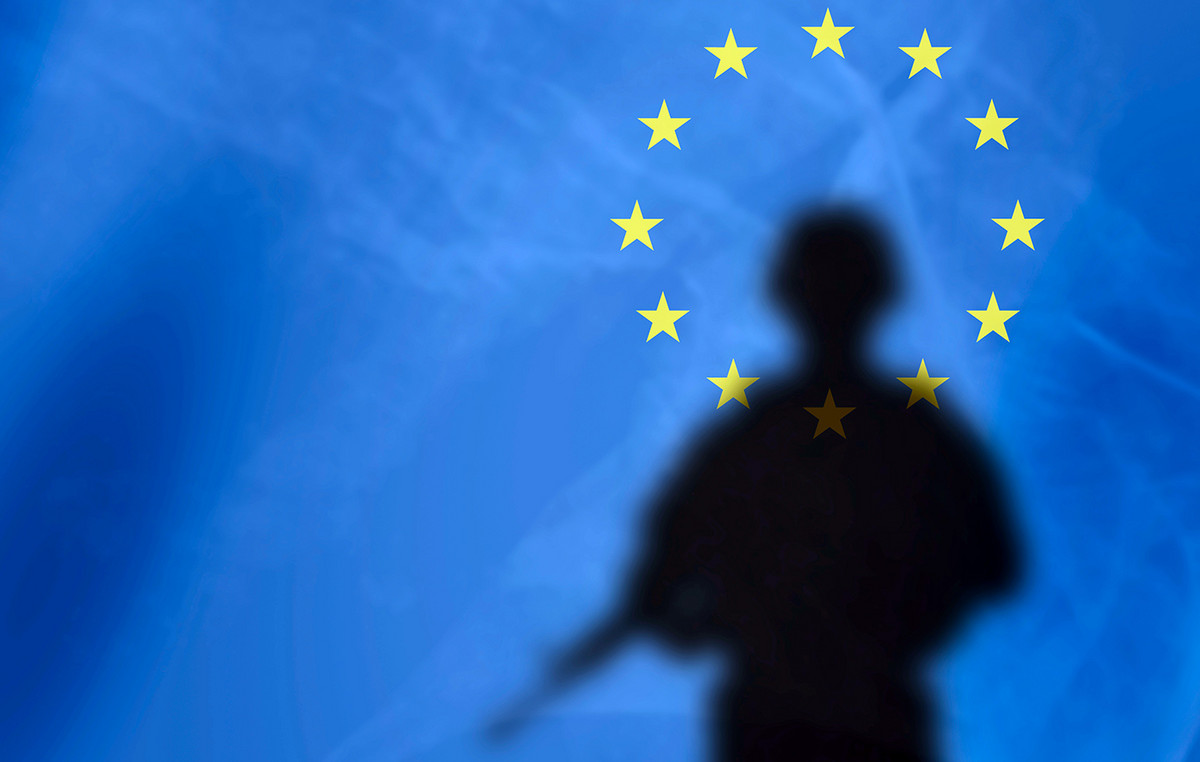European officials were surprised by China’s participation in a summit in Jeddah, Saudi Arabia, last weekend. The meeting was aimed at finding a peaceful solution to the war in Ukraine.
On the other hand, Beijing has yet to back down from its declared stance of impartiality, but it has sent a message to the international community that it is unwilling to openly choose Russia’s side against the West.
China’s mere presence at a meeting to which Russia says it was not invited has already improved the country’s figure in this scenario, say some sources.
It may be a very small victory, but in the diplomatic world of zero-sum games, Russian President Vladimir Putin not getting exactly what he wants is something to celebrate.
“We never expected China to fully move to the western position, but supporting this meeting will be a huge disappointment for Russia,” a senior European Union official told reporters. CNN .
“From our point of view, China is visibly engaged with the West, talking to the Ukrainians and rejecting Russia. We really welcome that,” the official said. Several European sources agreed with this view.
However, while China’s involvement with the international community could be a blow to Russia, it is still viewed with suspicion by Western allies, mainly due to the continued economic, diplomatic and security ties the countries share.
Despite the optics of its delegation’s presence in Jeddah, Beijing does not appear to reduce ties with Russia. Its top diplomat, Wang Yi, called his Russian counterpart, Sergey Lavrov, the day after the Jeddah talks concluded, reiterating Beijing’s “impartiality” in the conflict.

The two countries’ militaries continued joint exercises throughout the war, including a naval patrol off the coast of Alaska last week. Putin is also due to visit China in October, according to Russian media, after being invited by China’s Xi Jinping in March.
The same senior EU official acknowledged that there is little incentive in China for the war to stop outside of Beijing’s foreign relations with economic partners. “From their point of view, their biggest rival, the US, is distracted and Russia has become even more of a minority partner. The only downside is how it makes others think about China.”
It’s no secret that China’s relationship with Europe has become strained. That, officials say, is bad news for Chinese leaders, who see European nations at odds in the battle for global dominance between Beijing and Washington.
It is also no secret that China’s close ties with Russia – and failure to condemn Moscow’s full-scale invasion – has made several European countries, especially those geographically close to Russia, uncomfortable and has led to a rethink of what the country should look like. Europe’s relationship with China.
“China’s main objective is to keep the European position ambiguous so that it doesn’t go as far as the US would like,” a European security source told CNN. “Maintaining economic linkages makes it harder for hawks to pull Europe away from China. We suspect that Jeddah is a reaction to Russia, pushing Europe closer to the US. China will feel it needs to re-engage in Ukraine.”
Alicja Bachulska, a researcher at the European Council on Foreign Relations, agrees:
“China’s current activities are definitely about damage control in terms of public relations. China is on the fence and will continue to do so until it can. Participating in this type of meeting, especially if Russia is not involved, fits very well with this strategy. It makes good headlines for all those who still believe, naively in my view, that China can make a difference.”
In short, China’s arrival at the table has not changed control in Brussels over what is arguably the EU’s most complicated but important international relationship.
Several officials explained to CNN that the relationship with China is in something of a stasis that tries to balance what Europe needs and what Europe wants.
Europe still imports much more from China than it exports, a reflection of its level of dependence on China. In 2022, the trade deficit was €396 billion ($436 billion), more than double that of 2020.
However, this happened in the context of Europe’s cooling in signing official treaties and agreements. The Comprehensive Agreement on Investment, negotiated for nearly a decade before being agreed in principle, is stalled as China sanctioned members of the European Parliament for criticizing China’s human rights record.
Europe has also changed its official view of China, recognizing in 2019 that Beijing is a “systemic rival”. Since 2019, Brussels has undertaken specific policy initiatives that deliberately aim to challenge China’s dominance in Eurasia.
An EU official told CNN that Brussels has yet to “solidify” its position on China. “A statement like Jeddah is definitely welcome, but it’s not a game changer. We wanted China to do something like this from the beginning of the war.”
The official explained that even such positive measures are ultimately weighed against other behaviors such as Beijing’s respect for human rights, its threatening stance towards Taiwan and alleged state-sponsored corporate espionage. In that regard, China’s action or inaction in Ukraine is just another lens through which Brussels can view its various grievances against Beijing.
This dual reality, Europe needing China for some things but seeing it as a security risk and a nefarious player on the world stage, is what makes all of this such a headache.
In fact, even with such complicated relations, China has welcomed the leaders of France, Germany, Spain and even the president of the European Commission, Ursula von der Leyen, in recent months.

Brussels has set ambitious goals in areas such as climate change, leading the way in new technologies and having an independent foreign policy. The EU did not want to choose between the two major powers of East and West, so it opted for a third path in which the US would remain its main partner but deepen economic ties with China.
In doing so, he hoped to encourage China to align itself with European thinking on climate change, the rules-based international order and human rights, among other things.
In 2023, European officials know that China poses a major security concern and that becoming overly dependent on China is a risk. But they also accept that to achieve their lofty goals, they may need China’s help.
“The big dependencies of the future will be things like cheap electric vehicles, solar panels, steel for wind farms. These are things that China can produce cheaply and already has a head start on becoming a major supplier to the international market,” says Sam Goodman of the China Institute of Strategic Risks.
Goodman also notes that Europe’s current economic outlook may leave smaller states susceptible to the lure of Chinese money in terms of large infrastructure projects.
“Historically, China has been interested in buying or investing heavily in European infrastructure projects, be they nuclear power plants, roads or water companies,” he said. “European nations have cooled off lately, but it can be tempting for economically struggling countries to grab some cash as a quick fix.”
The security concerns that authorities have repeatedly flagged are wide-ranging. Senior EU security sources told CNN that China is still the top source of cyberattacks, most focused on corporate espionage.
Others say Europe doesn’t want to end up in the same position as Russia in terms of being so dependent on one supplier for energy or other resources, especially in the event that China becomes even stronger in its own backyard and moves from a systemic rival to a fully developed international pariah, as seen in Putin’s Moscow.
Between these security fears, Europe’s international ambitions and China’s global ambitions, it can seem difficult to define exactly what each side wants from their future relationship.
“I think China still doesn’t see Europe as a lost cause. It still hopes to turn the heads of enough European countries to prevent the United States from running away in the battle for new technologies,” says Charles Parton, former First Adviser to the EU Delegation in Beijing.
“They’ve recently lost out on things like Huawei and will be desperate to stay competitive in semiconductors, AI, all things that will be very important in the coming years,” he adds.
For Europe, it is more complicated. Officials say Brussels is committed to following the narrow path of the United States, remaining its closest ally, while resisting calls from Washington to detach completely from China. It will achieve its global goals without becoming overly dependent on China, they say, while simultaneously working with China on some of the most important issues facing the world today.
It’s an ambitious approach, but it leaves much of your own future in the hands of fate. Or, at least, in the hands of a country that has been demoted as a partner of Europe so significantly over the past decade.
Source: CNN Brasil
Bruce Belcher is a seasoned author with over 5 years of experience in world news. He writes for online news websites and provides in-depth analysis on the world stock market. Bruce is known for his insightful perspectives and commitment to keeping the public informed.







